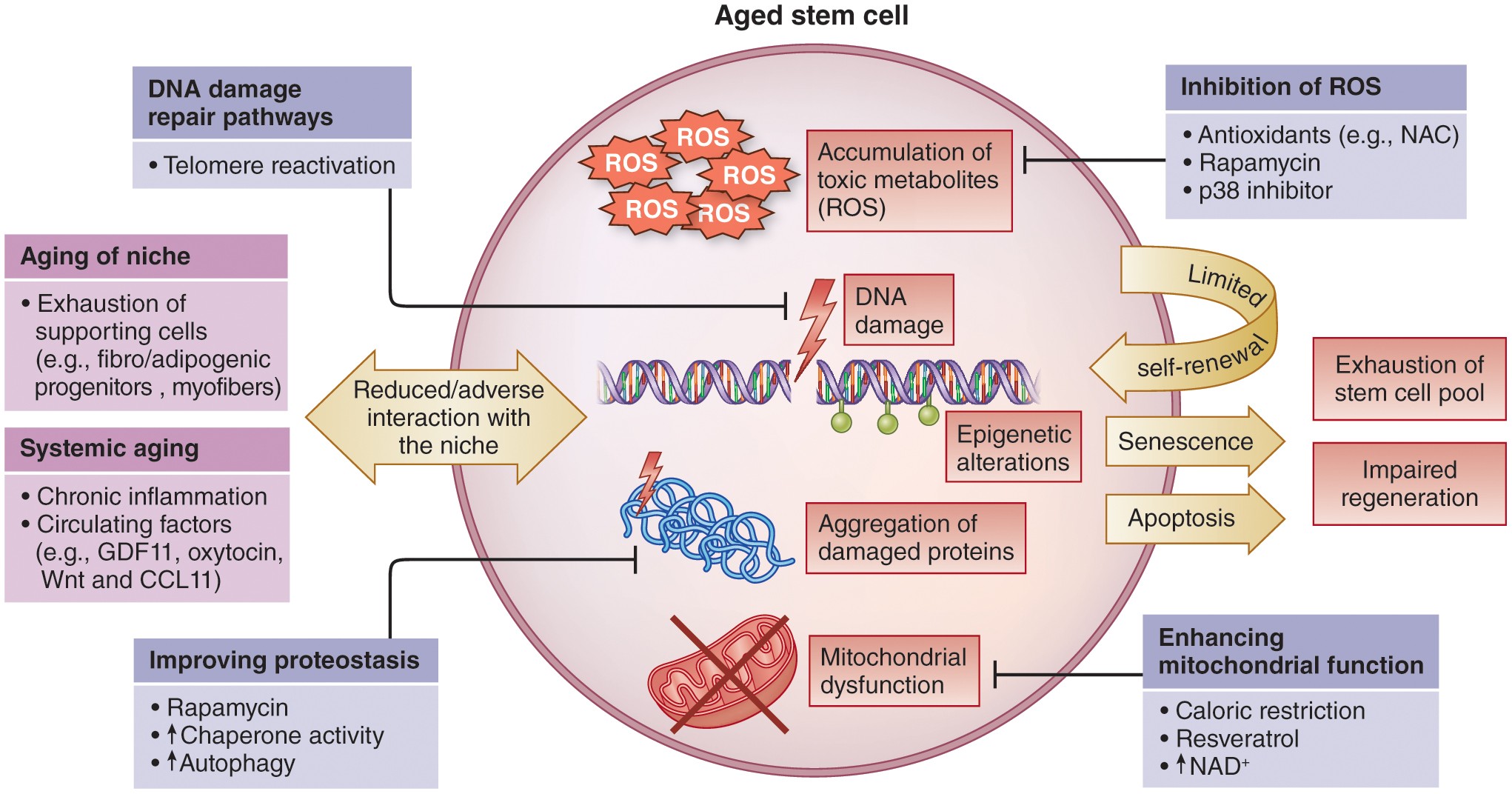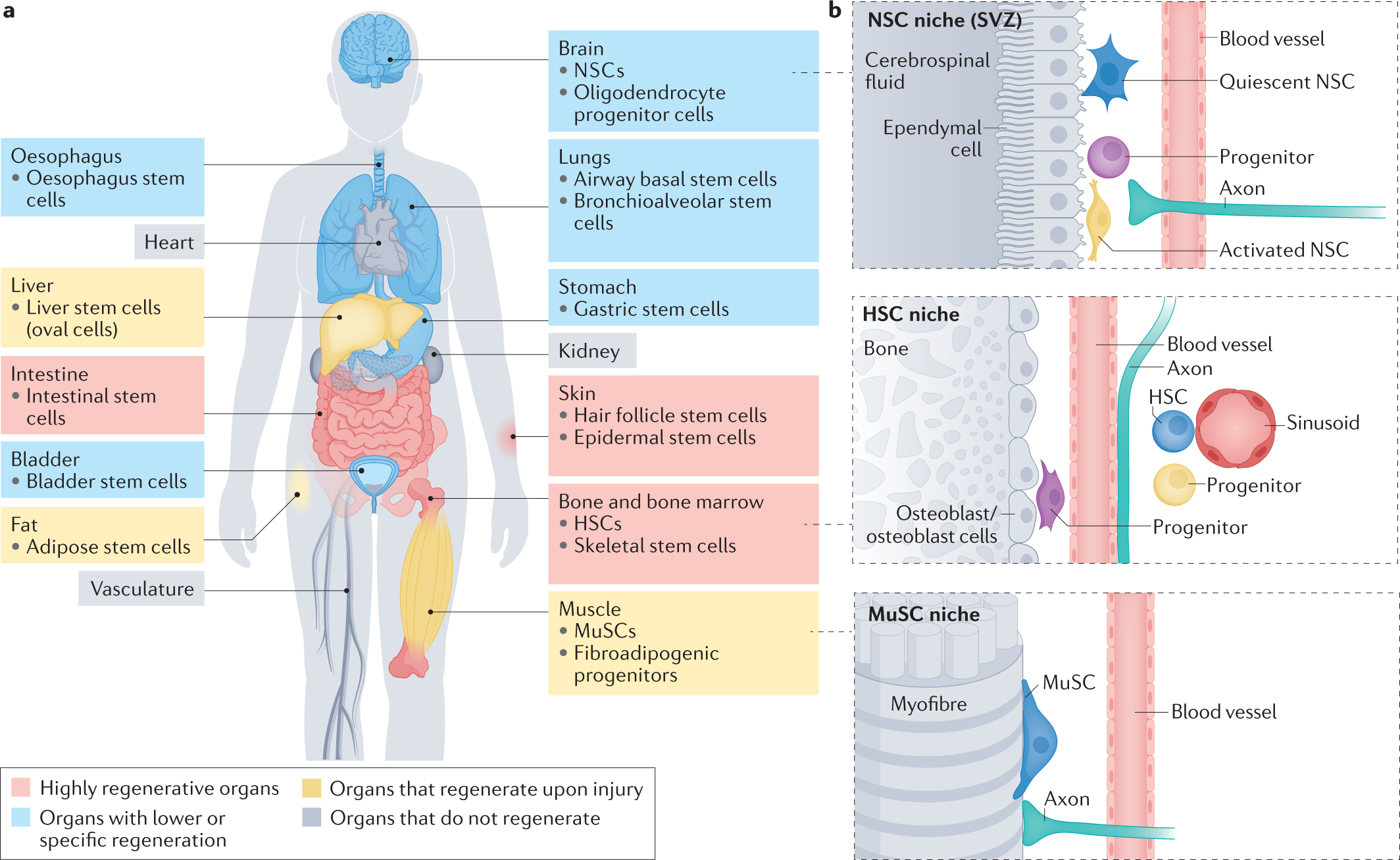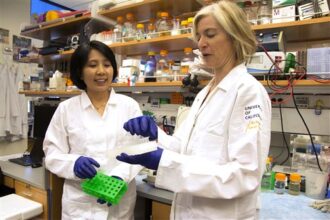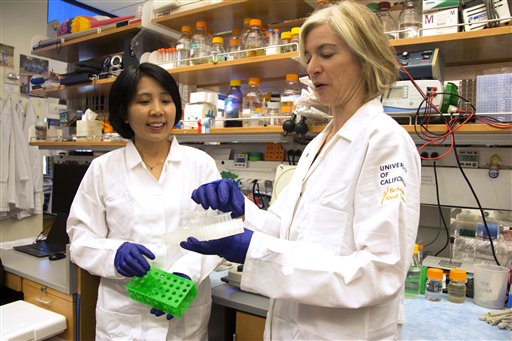Aging is an inevitable biological process, but the pursuit of longevity and vitality has led to groundbreaking advancements in regenerative medicine. Stem cell therapy has emerged as a revolutionary approach in the anti-aging field, offering potential solutions to counteract age-related decline and rejuvenate the body. With ongoing research and promising clinical trials, this blog explores the science behind stem cell therapies, their impact on patient outcomes, and what the future holds for this transformative technology.
The key to unlocking the mysteries of aging lies in the regenerative potential of stem cells. They hold the promise of not only extending life but improving the quality of those years.
Dr. Deepak Srivastava, President of the International Society for Stem Cell Research
The Science of Aging and Stem Cells
Aging involves a gradual decline in cellular function, leading to diminished tissue repair, organ dysfunction, and increased susceptibility to diseases. Stem cells, which possess the ability to self-renew and differentiate into specialized cells, are central to maintaining tissue homeostasis. However, with age, the functionality and population of stem cells diminish, contributing to the aging process.

Stem cell therapy seeks to address this challenge by replenishing or activating stem cells to restore damaged tissues, improve cellular function, and enhance overall vitality. Commonly used stem cells in anti-aging therapies include mesenchymal stem cells (MSCs), which are harvested from sources like bone marrow, adipose tissue, or umbilical cord blood. MSCs are favored for their regenerative properties, anti-inflammatory effects, and ability to modulate the immune system.
Clinical Insights: Patient Outcomes
Emerging research, including the findings from a pivotal study published on PubMed (PMID: 33914848), highlights the promising potential of stem cell therapies in anti-aging applications. Below, we examine the key patient outcomes observed in clinical trials and therapeutic applications:
1. Skin Rejuvenation
Skin aging, characterized by wrinkles, loss of elasticity, and thinning, is one of the most visible signs of aging. Clinical studies have demonstrated that stem cell therapies can significantly improve skin quality:
- Collagen Stimulation: Stem cells secrete growth factors that promote collagen synthesis, leading to firmer and more youthful skin.
- Improved Hydration and Elasticity: Patients reported improved skin texture and moisture retention after undergoing MSC therapy.
- Wound Healing: Enhanced wound healing and reduced scar formation were notable outcomes, showcasing the regenerative potential of stem cells.
2. Cognitive Function and Neurological Health
Aging often affects cognitive performance, leading to memory loss and neurodegenerative diseases like Alzheimer’s. Stem cell therapies have shown promise in neuroprotection and regeneration:
- Enhanced Cognitive Function: Patients undergoing stem cell treatments reported improvements in memory, attention, and overall cognitive performance.
- Reduction in Neuroinflammation: MSCs help mitigate inflammation in the brain, a key contributor to age-related cognitive decline.
- Regeneration of Neural Cells: Studies highlight the potential for stem cells to regenerate damaged neurons, offering hope for reversing neurodegeneration.
3. Musculoskeletal Health
Age-related degeneration of bones, cartilage, and muscles leads to conditions like osteoporosis and sarcopenia. Stem cell therapies have shown significant benefits in musculoskeletal rejuvenation:
- Improved Mobility and Strength: Patients reported enhanced mobility, reduced joint pain, and improved muscle strength post-treatment.
- Cartilage Regeneration: Stem cells were effective in regenerating cartilage, providing relief for conditions like osteoarthritis.
- Bone Density Improvement: Increased bone density was observed, reducing the risk of fractures in elderly individuals.
4. Systemic Anti-Inflammatory Effects
Chronic inflammation, or “inflammaging,” plays a central role in age-related diseases. Stem cells exhibit powerful anti-inflammatory properties, which contribute to systemic rejuvenation:
- Reduced Markers of Inflammation: Clinical trials showed a significant reduction in pro-inflammatory cytokines, improving overall health.
- Immune System Modulation: MSCs promote a balanced immune response, reducing the risk of autoimmune conditions associated with aging.
Safety and Ethical Considerations
While the benefits of stem cell therapy are promising, it is essential to address safety and ethical concerns:

- Safety: Current research indicates that stem cell therapies are generally well-tolerated, with minimal adverse effects. However, long-term studies are needed to ensure sustained safety and efficacy.
- Ethical Sourcing: The use of stem cells, especially embryonic stem cells, raises ethical questions. The growing adoption of adult stem cells and induced pluripotent stem cells (iPSCs) provides ethical alternatives.
Challenges and Future Directions
Despite its potential, stem cell therapy faces several challenges:
Stem cells are like the body’s own repair kit. They have the potential to reverse the effects of aging and restore vitality to damaged tissues.
Dr. Anthony Atala, Regenerative Medicine Expert and Director of the Wake Forest Institute for Regenerative Medicine
- High Costs: Stem cell treatments remain expensive, limiting accessibility for many individuals.
- Standardization Issues: Variability in protocols and cell quality across clinics can affect outcomes.
- Regulatory Hurdles: Stringent regulatory requirements slow the development and approval of new therapies.
Looking ahead, advancements in biotechnology and personalized medicine are expected to address these challenges. Combining stem cell therapy with other modalities, such as gene editing and nanotechnology, could further enhance its efficacy and accessibility.
Real-Life Stories: Transformative Patient Experiences
One of the most compelling aspects of stem cell therapy is its impact on patients’ lives. Stories of individuals experiencing revitalized energy, enhanced physical capabilities, and improved quality of life underscore the potential of this therapy. For instance:

- A 62-year-old woman reported significant improvements in her skin’s texture and elasticity after undergoing adipose-derived MSC therapy.
- A retired athlete experienced reduced joint pain and regained mobility after receiving stem cell injections for osteoarthritis.
- An entrepreneur in his 70s observed better cognitive clarity and sustained energy levels following systemic stem cell treatments.
These testimonials, combined with clinical evidence, highlight the life-changing potential of stem cell therapy for anti-aging.
Final Thought: A New Era of Anti-Aging Therapies
Stem cell therapy represents a paradigm shift in the anti-aging landscape, offering hope for not only prolonging life but enhancing its quality. By addressing the root causes of aging at a cellular level, this innovative approach has the potential to transform healthcare and redefine how we age.
While challenges remain, the ongoing advancements in research and technology promise a future where stem cell therapies become a cornerstone of personalized anti-aging treatments. For individuals seeking to invest in their longevity and well-being, the possibilities offered by stem cell therapy are truly groundbreaking.
As we continue to explore the frontiers of regenerative medicine, one thing is clear: the dream of aging gracefully and healthily is becoming an achievable reality.
By understanding the science, evaluating clinical outcomes, and addressing the challenges ahead, we can embrace a new era where aging is no longer seen as a limitation but an opportunity for renewal and growth.
Recent Insights into Patient Outcomes: Stem Cell Therapies for Anti-Aging
“Stem Cell Injections Improve Skin Elasticity and Reduce Wrinkles”
A 2023 clinical trial demonstrated that patients receiving mesenchymal stem cell (MSC) injections showed a 35% improvement in skin elasticity and a significant reduction in fine lines and wrinkles after three months. The therapy stimulated collagen production and cellular regeneration in the skin, promoting a youthful appearance.
Explore the study here.
“Stem Cell Therapy Reverses Cognitive Decline in Aging Patients”
A groundbreaking 2022 study found that stem cells derived from umbilical cord tissue enhanced cognitive function in patients experiencing age-related memory decline. Participants showed measurable improvements in focus, recall, and brain processing speed, attributed to reduced neuroinflammation and neuronal repair.
Read more about the findings here.
“Stem Cell-Derived Exosomes Boost Energy Levels in Aging Individuals”
Research published in 2023 highlighted the use of stem cell-derived exosomes, which act as messengers for cellular repair, to combat fatigue and low energy in aging individuals. Patients reported higher stamina and vitality after 8 weeks of treatment due to enhanced mitochondrial function.
Discover the research here.
“Adipose-Derived Stem Cells Reduce Joint Pain in Older Adults”
A 2022 study demonstrated that adipose-derived stem cells significantly reduced joint pain and improved mobility in elderly patients suffering from osteoarthritis. The therapy regenerated cartilage and reduced inflammation, providing long-term relief without the need for invasive procedures.
Learn more about the trial here.
“Stem Cell Therapy Lowers Markers of Systemic Inflammation”
A 2023 investigation revealed that systemic infusions of MSCs in aging patients decreased pro-inflammatory cytokines by 40%. Lower inflammation levels were linked to improved overall health, reduced risk of chronic diseases, and enhanced tissue repair.
Explore the details here.
“Hair Regeneration Through Scalp Stem Cell Injections”
A recent 2022 study showed that stem cell injections into the scalp stimulated dormant hair follicles, resulting in a 45% increase in hair density and thickness after 6 months. The therapy rejuvenated follicle stem cells and improved scalp blood circulation.
Read more about this innovative approach here.
“Umbilical Cord Stem Cells Enhance Muscle Strength in Aging Patients”
A 2023 study demonstrated that umbilical cord-derived stem cells improved muscle mass and strength in patients experiencing age-related sarcopenia. Participants saw a 20% increase in physical performance after undergoing therapy, attributed to enhanced protein synthesis and cellular repair.
Discover more here.
“Stem Cell Therapy Combines with Nanotechnology for Anti-Aging”
Cutting-edge research in 2023 explored the synergy between stem cells and nanotechnology to target aging cells. The approach allowed for precise delivery of stem cell-derived factors, amplifying tissue regeneration and cellular repair. Patients experienced faster recovery and enhanced vitality.
Learn about this breakthrough here.
“Stem Cell Infusions Improve Sleep Quality in Aging Adults”
A 2022 clinical trial found that patients receiving intravenous stem cell therapy experienced improved sleep quality and reduced symptoms of insomnia. The therapy modulated circadian rhythm pathways and reduced brain inflammation, which are often disrupted with age.
Read the study here.
“Combination Therapy: Stem Cells and Lifestyle Optimization”
In 2023, researchers highlighted the benefits of combining stem cell therapy with lifestyle interventions such as intermittent fasting and personalized nutrition. The integrated approach maximized mitochondrial function, improved energy, and reduced visible signs of aging in participants.
Explore this holistic strategy here.
These recent advancements underscore the transformative potential of stem cell therapies in combating the effects of aging. With continued innovation and integration of complementary technologies, the future of anti-aging medicine looks brighter than ever.
























